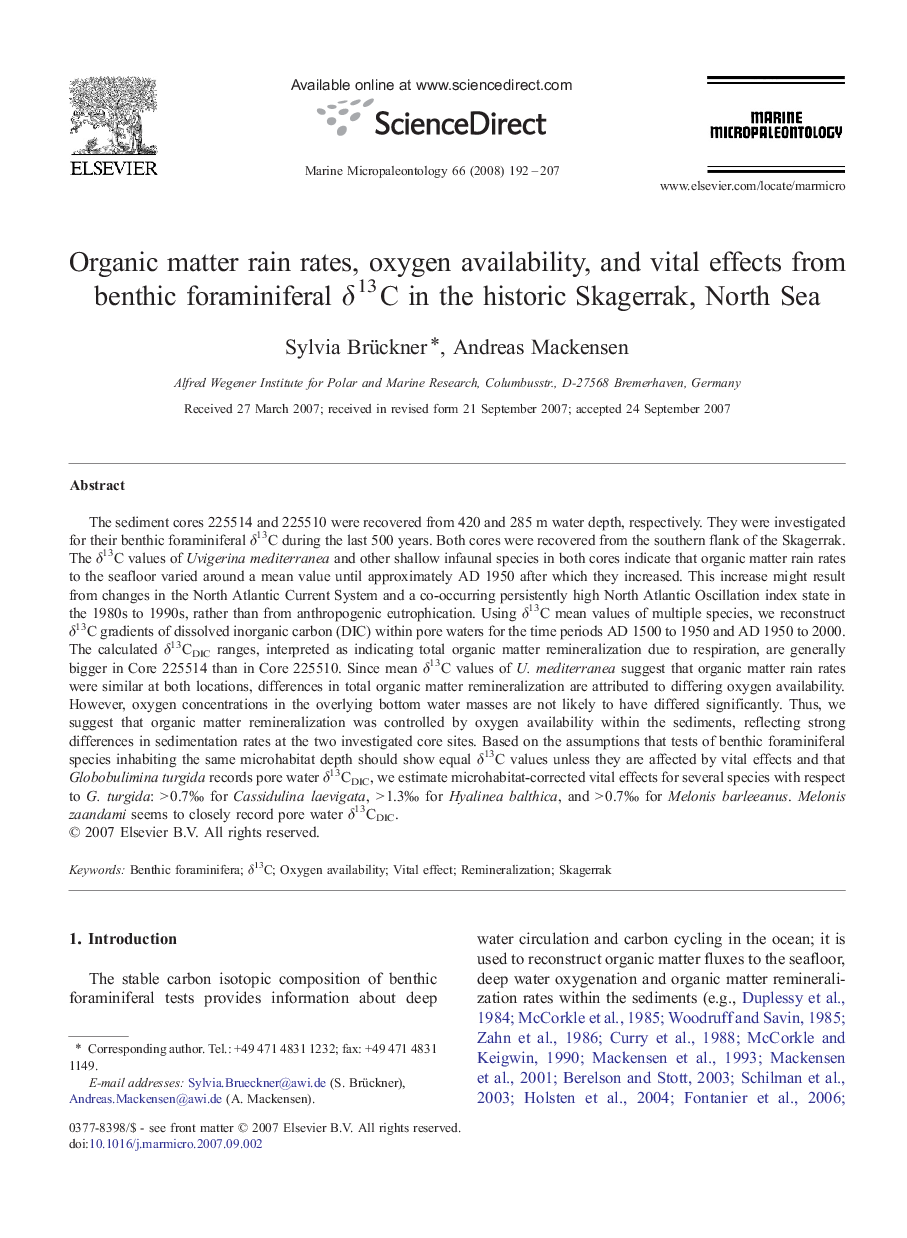| Article ID | Journal | Published Year | Pages | File Type |
|---|---|---|---|---|
| 4749398 | Marine Micropaleontology | 2008 | 16 Pages |
The sediment cores 225514 and 225510 were recovered from 420 and 285 m water depth, respectively. They were investigated for their benthic foraminiferal δ13C during the last 500 years. Both cores were recovered from the southern flank of the Skagerrak. The δ13C values of Uvigerina mediterranea and other shallow infaunal species in both cores indicate that organic matter rain rates to the seafloor varied around a mean value until approximately AD 1950 after which they increased. This increase might result from changes in the North Atlantic Current System and a co-occurring persistently high North Atlantic Oscillation index state in the 1980s to 1990s, rather than from anthropogenic eutrophication. Using δ13C mean values of multiple species, we reconstruct δ13C gradients of dissolved inorganic carbon (DIC) within pore waters for the time periods AD 1500 to 1950 and AD 1950 to 2000. The calculated δ13CDIC ranges, interpreted as indicating total organic matter remineralization due to respiration, are generally bigger in Core 225514 than in Core 225510. Since mean δ13C values of U. mediterranea suggest that organic matter rain rates were similar at both locations, differences in total organic matter remineralization are attributed to differing oxygen availability. However, oxygen concentrations in the overlying bottom water masses are not likely to have differed significantly. Thus, we suggest that organic matter remineralization was controlled by oxygen availability within the sediments, reflecting strong differences in sedimentation rates at the two investigated core sites. Based on the assumptions that tests of benthic foraminiferal species inhabiting the same microhabitat depth should show equal δ13C values unless they are affected by vital effects and that Globobulimina turgida records pore water δ13CDIC, we estimate microhabitat-corrected vital effects for several species with respect to G. turgida: > 0.7‰ for Cassidulina laevigata, > 1.3‰ for Hyalinea balthica, and > 0.7‰ for Melonis barleeanus. Melonis zaandami seems to closely record pore water δ13CDIC.
